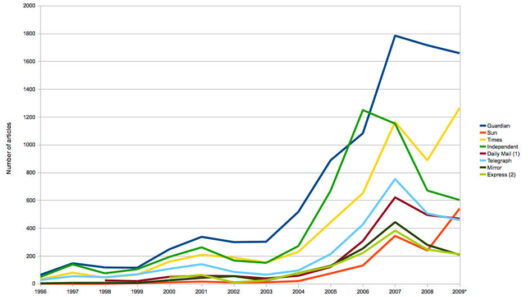The phenomenon of global warming is not merely an abstract notion; it is a tangible reality reverberating through the very fabric of our societies. The intricate web of climate systems is often perceived through the lens of environmental degradation, yet its implications extend far beyond ecological concerns. The social ripple effects of global warming emerge as a multifaceted conundrum that demands our attention. As we delve deeper into this pressing issue, it becomes evident that understanding the implications of climate change necessitates a paradigm shift—one that piques our curiosity and challenges our preconceptions.
At its core, global warming results from anthropogenic activities, primarily the combustion of fossil fuels, deforestation, and industrial processes. These activities elevate the concentration of greenhouse gases in the atmosphere, leading to a gradual increase in global temperatures. This warming triggers profound alterations across diverse environmental systems, which in turn catalyze social repercussions.
One of the most immediate effects of global warming is the alteration of weather patterns. Shifts in climate dynamics manifest as extreme weather events—hurricanes, floods, droughts, and heatwaves—with an increasing frequency and intensity. The ramifications of these events are not isolated to geographic locations but rather stretch across collective human experiences. Disaster-stricken populations face the daunting challenge of rebuilding their lives amidst the debris of their past. Economic instability often follows, as communities grapple with the costs of recovery and the loss of livelihoods.
Food security emerges as another critical concern intimately tied to climate change. As naturally occurring ecosystems are disrupted, agricultural productivity falters. Increasing temperatures and altered precipitation patterns can diminish crop yields, leading to shortages. Consequently, societies—particularly those in vulnerable regions—may experience increased competition for dwindling resources. This tension can exacerbate existing social inequities, engendering conflicts that may spill over borders, further aggravating global instability.
Furthermore, the displacement of populations due to rising sea levels presents another layer of complexity. Coastal communities face existential threats as oceans encroach upon their territories, prompting mass migrations. This phenomenon, often termed climate refugees, challenges nations to grapple with the social, economic, and political implications of such movements. The influx of displaced individuals into urban centers can strain infrastructure, social services, and housing markets, leading to heightened tensions among native populations. Addressing these challenges necessitates innovative policies that foster resilience and inclusivity.
As communities wrestle with the ramifications of global warming, mental health issues can also rise to the forefront. Individuals who endure the trauma of natural disasters or the stress of economic instability may experience heightened anxiety, depression, and other psychological ailments. The concept of eco-anxiety, a term that captures the chronic fear of ecological doom, is becoming increasingly relevant. Understanding the mental health implications of climate change is vital in forging a compassionate approach to community resilience.
The unraveling of societal structures in response to climate change reveals the necessity for robust support systems. Social safety nets and community networks must be fortified to promote collaboration and resource-sharing. Grassroots movements advocating for climate justice play a critical role in fostering awareness and mobilizing collective action. Through solidarity, communities can harness their strengths to tackle pre-existing inequalities while responding to the challenges posed by global warming.
Moreover, the cultural implications of climate change cannot be overlooked. Indigenous populations, whose livelihoods often hinge on their relationship with the land, face profound existential challenges. The degradation of ecosystems threatens not only their way of life but also their cultural heritage. Preservation of traditional knowledge systems is vital as these communities offer invaluable insights into sustainable practices honed over millennia. Bridging the gap between modern science and traditional wisdom can yield innovative solutions necessary for addressing the intricacies of climate change.
Education emerges as a critical tool in understanding and addressing the social ripple effects of global warming. Interdisciplinary approaches that intertwine environmental science, sociology, and economics can cultivate a more nuanced understanding of the issues at hand. Schools and institutions of higher learning have the opportunity to instill critical thinking and foster a sense of responsibility in future generations. Engaging students in proactive discussions about climate change can pique their curiosity and inspire them to become agents of change.
The synergy between innovation and climate action is paramount in mitigating the social repercussions of global warming. Technological advancements that promote renewable energy sources, sustainable agriculture, and efficient resource management can help address the root causes of climate change. By fostering innovation, societies can pivot toward solutions that not only alleviate environmental degradation but also promote social equity.
International cooperation is indispensable in this endeavor. Global warming does not recognize borders; therefore, collective action is essential for devising comprehensive strategies to mitigate its effects. Climate agreements, such as the Paris Accord, exemplify the need for collaborative efforts in limiting global temperature rises. The onus lies on nations to commit to ambitious targets that prioritize sustainable development and environmental stewardship.
In closing, the social ripple effects of global warming permeate every aspect of our lives. The challenges posed by climate change transcend environmental concerns, touching on critical social, economic, and cultural dimensions. By embracing a shift in perspective, we can unearth the myriad ways in which our societies are interconnected. This understanding fosters a sense of responsibility—one that compels us to act decisively and collaboratively in the pursuit of a sustainable future. Only through curiosity, empathy, and innovation can we forge pathways that transcend adversity and lead us towards resilience and hope.




